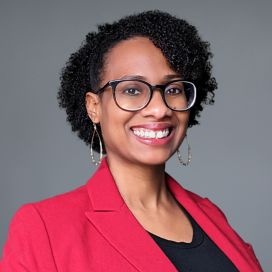Medicaid Managed Care Organization Learning Hub

Problem
State Medicaid leaders, community partners, and managed care organizations require current, trustworthy information in our shifting health care landscape
Because of their circumstances, people insured through Medicaid tend to experience poorer health outcomes than other Americans. Medicaid managed care organizations (MCOs), which most states rely on to manage Medicaid health plans, may be earnest in their efforts to provide top-quality care. But patients’ well-being can be impaired by factors outside the purview of medical professionals, such as food insecurity, homelessness, and behavioral health disorders.
Solution
NORC offered reliable and timely resources and strategies to MCOs on how to support Medicaid populations.
NORC and its partner, Speire Healthcare Strategies, LLC, teamed with America's Health Insurance Plans and the Association for Community Affiliated Plans and Community Catalyst and Families. Together, we hosted a series of wide-ranging discussions with MCOs and advocates on how MCOs could collaborate with community-based organizations to improve the overall health of Medicaid enrollees. In these roundtables, we identified barriers that separated these would-be allies to produce a series of briefs with findings and recommendations from these discussions. We also research briefs based on literature reviews and spotlights based on discussions with states and other organizations to highlight best practices that could be copied elsewhere.
Result
Managed Care Organizations now have practical guidance to improve Medicaid patient health.
In addition to presenting policy recommendations to the Robert Wood Johnson Foundation and our project partners, we published a dozen articles on our NORC Learning Hub highlighting examples of role-model collaborations. Findings highlight takeaways from the three project focus areas—social determinants of health, behavioral health, and member engagement—as well as other timely topic areas. These include MCO's response to the COVID-19 pandemic and investments in affordable housing. With funding from the MolinaCares Accord, we also hosted a six-part webinar series that focused on lessons learned from other innovative approaches to Medicaid managed care nationwide.
Join Our Mailing List
Sign up for emails and updates from the NORC Medicaid Managed Care Organization (MCO) Learning Hub.
Findings & Recommendations
Related Tags
Project Leads
-
Scott Leitz
Vice PresidentProject Director -
Petry S. Ubri
Senior Research ScientistSenior Staff
Data & Findings
COVID-19 Resources
New Managed Care - Webinar Series
Funded by MolinaCares Accord
Building Current and Future Capacity in the Healthcare Workforce
December 2022
Successful Strategies in Behavioral Health Integration
October 2022
How Can States Engage with Health Plan Foundations to Address Health Disparities
July 2022
How States Can Use ARPA Funding to Support HCBS Technology Needs
March 2022
Addressing the Care Fragmentation Crisis for Dually Eligible Individuals
November 2021
Meeting the Behavioral Health Needs of Medicaid Members Post-Pandemic
July 2021
MCO Learning Hub - Webinar Series
MCO Investments in Affordable Housing
February 2021
Medicaid MCO Overview and Financing Webinar
November 2020
Medicaid MCO Authorities and Partnership Strategies Webinar
December 2020









